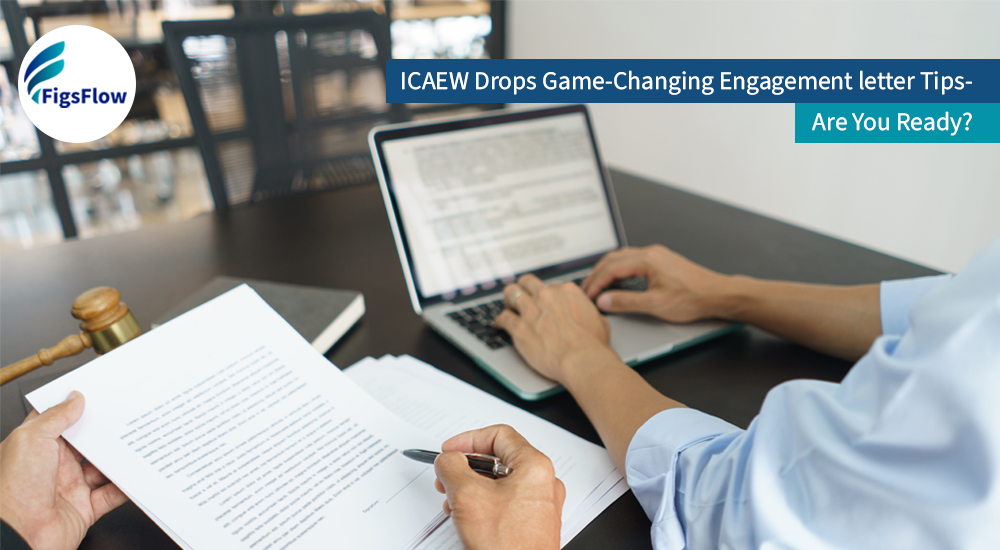Engagement letters may seem routine, but according to the Journal of Accountancy, 39% of accountancy firms that faced legal claims did not present their clients with a proper engagement letter. So, to help mitigate this, ICAEW has issued a comprehensive template designed to support accountants, bookkeepers and tax advisers with their engagement letters and minimise the risk of misunderstandings.
This article takes a look at this latest ICAEW guidance on drafting clear, compliant and effective engagement letters and provides a summary of essential steps to take to build trust and protect professional relationships.
Key Takeaways
- Engagement letters are legally binding contracts that define services, fees, and responsibilities between firms and clients
- ICAEW provides a five-part template framework covering service terms, privacy compliance, and professional standards
- 39% of accountancy firms facing legal claims did not present proper engagement letters to clients
- Digital signatures on engagement letters are legally binding under UK law
- Manual letter drafting takes 30-45 minutes per client while automated platforms reduce this to 30 seconds
- Compliance requires explicit service scope, exclusions, GDPR privacy notices, and termination conditions
What Makes an ICAEW-Compliant Engagement Letter?
An ICAEW-compliant engagement letter meets specific structural and content requirements established by the Institute of Chartered Accountants in England and Wales. These requirements ensure the document carries legal weight while meeting professional standards expected of UK accounting practices.
Essential Components Include:
- Party Identification – Full legal names, addresses, and business registration details for both firm and client
- Service Scope – Explicit list of deliverables you will provide (transaction coding, bank reconciliation, VAT returns)
- Service Exclusions – Clear statement of what you will not provide (tax advice, audit services, financial planning)
- Fee Structure – How fees are calculated (hourly, fixed monthly, per transaction) including VAT treatment
- Payment Terms – Invoice frequency, payment due dates, late payment consequences, accepted payment methods
- Client Responsibilities – Documents clients must provide, submission deadlines, and record quality requirements
- GDPR Compliance – Privacy notices explaining how client data will be collected, stored, processed, and protected
- Professional Standards – Reference to ICAEW or other professional body guidelines governing the relationship
- Limitation of Liability – Clauses protecting firms from unreasonable claims while remaining fair to clients
- Termination Conditions – Notice periods required, circumstances allowing immediate termination, treatment of work in progress
ICAEW presents this framework as best practice guidance rather than mandatory professional standards. However, the structure aligns with UK legal requirements and regulatory expectations. Letters incorporating these elements provide maximum protection when fee disputes or service disagreements arise.
5-Part ICAEW Engagement Letter Template
ICAEW has issued structured guidance for drafting an effective engagement letter, presented in five key segments outlined below. These segments form a comprehensive and compliant engagement letter, ensuring clarity and alignment between professional firms and their clients.
- Engagement Letter (Part 1)
- Schedules of Service(s) (Part 2)
- Additional Wordings (Part 3)
- Terms of Business (Part 4)
- Privacy Notices (Part 5)
Part 1 of the template/helpsheet provides sample engagement letter wording suitable for a range of clients, including individuals, unincorporated businesses, partnerships, limited companies registered under the Companies Act, and limited liability partnerships. However, ICAEW clarifies that this guidance is intended for best practice and does not constitute a professional standard. Professionally drafted, ready-to-use engagement letter templates aligned with applicable standards can be accessed through FigsFlow.
Here’s a look at a sample ICAEW-compliant engagement generated through FigsFlow.
Part 2 includes a series of schedules covering various professional services such as auditing, accounting, taxation, and probate work. Specific schedules address services including Trusts and Estates Tax Returns, Corporation Tax, Payroll and Tax Credits.
Part 3 presents optional additional wording intended for use in specific circumstances. These can be adapted to create supplementary schedules where necessary.
Similarly, Part 4 outlines the core terms that should be incorporated into every engagement letter. These include the scope of services, key timelines, client responsibilities, payment terms and conditions for termination by either party.
Finally, Part 5 provides a short-form privacy notice template. This includes suggested wording to explain the purpose for collecting personal data, the types of data collected and the legal basis for processing such data.
You can access this entire template at ICAEW official site.
Automate ICAEW-Compliant Engagement Letters with FigsFlow
Engagement letters within FigsFlow are compliant with ICAEW, ACCA, CIOT, and UK GDPR standards. The best part? You can create fully compliant, professional engagement letters in 30 seconds and in some cases, with less than 10 clicks.
See for yourself. Try FigsFlow free for 30 days.
Conclusion
The latest template issued by ICAEW provides valuable guidance for drafting engagement letters that are legally compliant and professionally effective. It serves as a useful resource for accountants, bookkeepers and tax advisers seeking to minimise legal risks and maintain regulatory compliance.
However, it is important to note that the template is intended solely for professional guidance. For those seeking a ready-to-use solution, FigsFlow offers a comprehensive alternative. The platform provides customisable engagement letters and proposals, along with automated client onboarding tools tailored to the needs of modern accounting practices.
A 30-day free trial is available at FigsFlow for firms wishing to explore these features.


